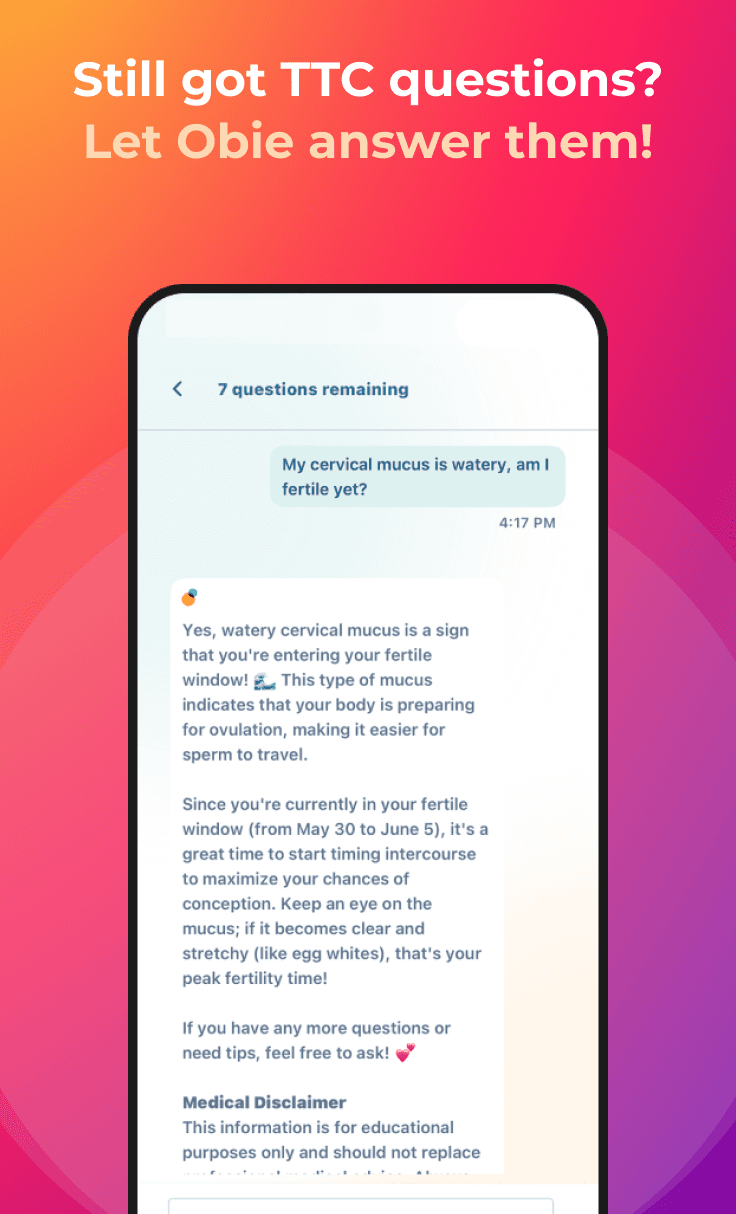How Do I Know When to Get Pregnant?
Getting Pregnant
Obie Editorial Team
Making the decision to start a family is one that many couples face as they enter their late 20s and early 30s. Just 20 years ago, more women were getting pregnant in their 20s than those in their 30s, but times are changing. Women are focusing on life and career a bit longer and putting off motherhood until they are financially ready to tackle caring for a child. Women often want to know when to get pregnant, but the answer is not as clear cut as some would like.
The Physical Answer to When to Get Pregnant
Physically, each month the female body gives her a chance to become pregnant. During ovulation, hormones are in place and ready to take care of a fertilized, implanted egg. These hormones only stick around for 14 days after the egg is released. If the egg is not fertilized, it will not implant and a normal menstrual cycle will begin. Women who track their menstrual cycles can expect their most fertile time to be about 14 days before their next menstrual cycle is supposed to begin.
The Mental Answer to When to Get Pregnant
Women asking when to get pregnant may not desire a physical answer as much as a mental answer. No one can tell a woman when to get pregnant, but there are times in life that are more fertile. Fertility is often highest before the age of 35, but that is not stopping women from getting pregnant well into their 40s. With increased age comes increased risk of some genetic disorders and may increase complications of pregnancy.
Questions to Ask Yourself About When to Get Pregnant
Are you ready to take care of an infant? Taking care of an infant is a 24 hour a day job. Some women realize they are not emotionally ready to care for a child until later in life. Others are ready earlier, so the decision is purely personal.
Do you have a plan for after the baby is born?
Full-time working moms have a difficult decision to make when thinking about when to get pregnant. After baby is born, will you return to work and if so, who will take care of the infant while you are away.
Are the finances in order to raise an infant?
Diapers, formula, clothing and daycare can cost plenty of money. Women need to think about finances when choosing when to get pregnant. While money is not the only consideration it is an important one. If there is not enough money to pay for basic necessities, it may be more appropriate to wait. If day care is not an option, will there be viable income from a spouse or partner to take care of financial obligations?
Getting pregnant is often a personal and physical battle. As a rule of thumb, women under the age of 35 should try to get pregnant for about a year before seeking medical help. Women over the age of 35 should try for six months. Fertility treatments are a viable option for most women and the cost is dramatically less than it was 10 or 15 years ago.








